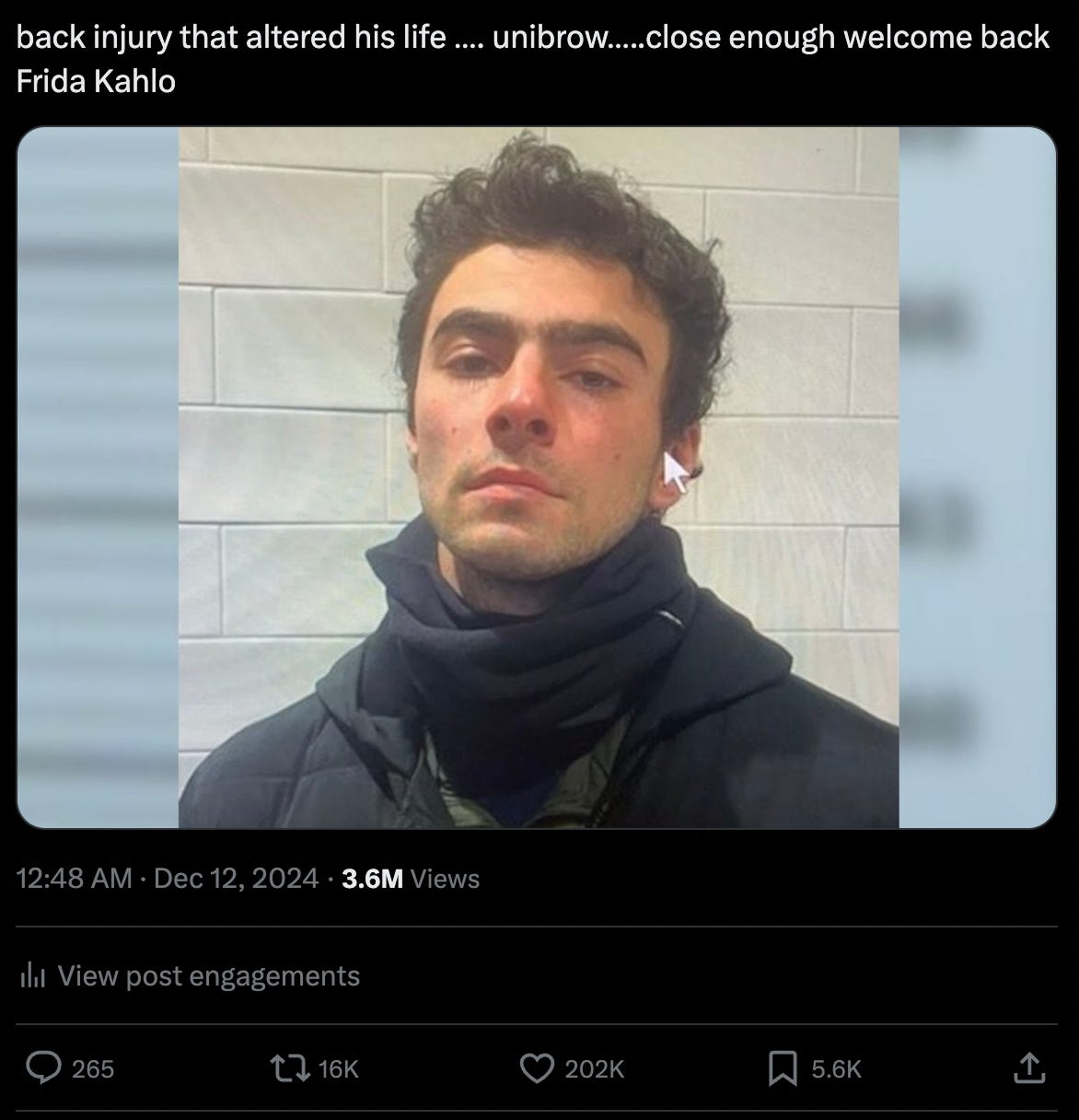DISTRACTIONS
I did my duty as a red blooded American woman and had a hit tweet about Luigi Mangione, and like all great works of art watched derivative versions of it appear. This is the original:
Everyone I know who is mildly annoyed or upset about Luigi Mangione is a straight man. They are threatened, girls, and it’s understandable. Every girl with a…




